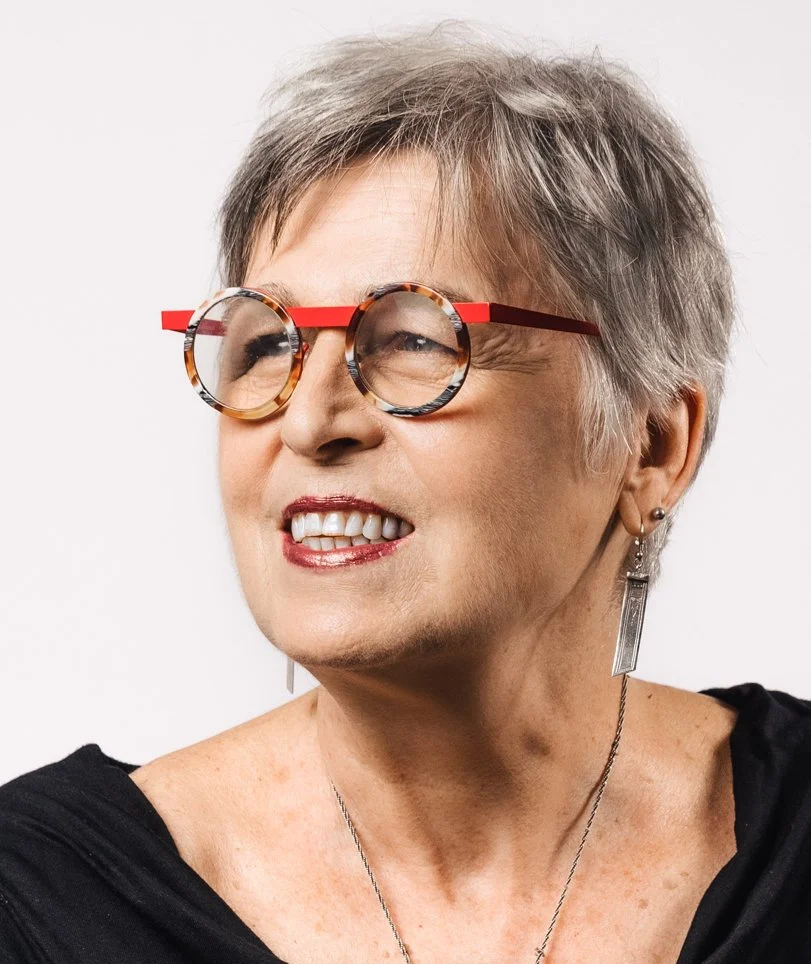Cecile Savage Sings Her Life Stories in Languages She Loves
Outside, on a South side street, children played. Inside, in her home, Cecile Savage heard these sounds and realized this: “The sound of children playing is the same. Whatever language they speak, it’s the same sound,” said the Martinique-born Savage, who has also lived in Paris, New Orleans, and New York. “They’re happy. It’s so universal.”
This epiphany moved Savage, a vocalist and bassist, to compose lyrics about what these sounds stirred in her soul: “It’s the same shining sun in Dakar and in Rio/In Paris and in Chicago/Once again, the same old blues/the same blue skies/ev’ry shade and hue of twilight falls/all children sing in universal tongues…”
This song, “Le Meme Monde/The Same World,” which Savage composed and sang in French and English, is included on Night Solitude, her new album. Supported by a rhythm section led by pianist Dennis Luxion, Night Solitude features eight originals containing Savage’s observations about relationships.
“All these songs are autobiographical. They are all about relationships that go sour,” Savage said during a recent conversation. (The album’s cover is a painting by her mother, Yannick Ballif, (1927-2009), an acclaimed artist whose works were displayed in Buenos-Aires, Prague, Wroclaw, and the USA, among other locations.) When discussing Night Solitude’s second song, “The Journey,” also recorded on her previous album, Savage recalled its origins.
“It came out of a conversation I had with Von Freeman. I had gone to listen to Ray Brown, and Von went to see him and said he didn’t look good,” Savage said. “Von said it looked like the light was off; his journey was off. Von said, ‘There is a life; there is a journey,’ so that’s why I wrote that song. My song is about the journey of life as a musician and learning from the masters that came before me.”
The Journey, her debut album, featured pianist Calvin Brunson, drummer Curtis Prince, and other local gents. Here is a taste from the title track: “On the way, forever searching/There is no ending to this long journey/Lessons from the masters inspired/to withstand alone, tribulations on this long journey….”
Vonski’s advice about life as a musician, Savage said, remain relevant. Another mentor that Savage credited with helping maintain her voice and vision is vocalist and life coach Bobbi Wilsyn.
When discussing ways she has helped Savage, Wilsyn mentioned correct breathing control while singing and maintaining positivity.
“Sometimes we find out that we’re not the first call (for gigs), or some physicality intrudes on the way we continue to perform, and we lose confidence,” Wilsyn said. “So I always work on the mind as well as the music.”
Savage also credited Dennis Luxion for guiding the ensemble on Night Solitude – bassist Joshua Ramos, drummer Paul Cotton, and saxophonist Fred Jackson – through her tunes.
“He was more than helpful; oh, my God! He did all the arrangements,” Savage said. “He wrote some very professional charts. He came with the stuff already printed. Man!”
Savage’s songs, Luxion said, contained personal characteristics that kept them interesting.
“She’s not just filling in eight-bar phrases where the form gets predictable. She’s much more interested in the flow of words,” he said. “She does write in French and English, so the languages have something to do with the music.”
By the way, Savage composed all the bass lines played by Ramos. “Josh is so beautiful. I just love that cat,” she said. “He was so supportive and is a real treasure. He really liked those bass lines.”
Classical…Sugar…Unplugged
Raised in Paris, Savage studied classical piano until age 17. Then, upon relocating to New York in 1972, she began playing guitar. She received instruction from the Jazzmobile, the Harlem-based arts program started in 1964 by Dr. Billy Taylor and Daphne Anstein. Every Saturday morning, Savage learned from musicians acknowledged as true masters.
“I learned from Ted Dunbar, who was a fabulous guitar player. He taught me so much,” Savage said about Dunbar, known for having recorded with Gene Ammons, Tony Williams, and other heavy cats. “Every time he would say something it was like fireworks in my mind.”
Savage also praised bassist Reggie Workman and saxophonist Frank Foster for helping her mature as a musician. “I was so blessed to live those days in New York. I just had no money. I don’t know how I went to all those clubs,” she said. “I used to sit and talk with Sir Roland Hanna, and he was so kind. The musicians there were so giving of their time.”
One day, Savage met James Whiting, a dude who played blues harmonica. She recalled Whiting’s evaluation after he heard her play. “He said, ‘I have a better guitar player than you. Why don’t you play the bass?’ I had no interest in playing the electric bass.”
This harmonicist – known professionally as Sugar Blue – persuaded Savage to play the porkchop and accompany him and his guitarist on New York’s streets. This gig lasted five years.
“We made good money, because he was an excellent harmonica player,” Savage recalled. “He was flashy, and people loved it.”
Eventually, Savage left New York and returned to France. Sugar Blue joined her a few months later. There, they played in the subways. One day, someone connected to the Mick Jagger Quintet heard Sugar Blue playing and told on him. This “report” led to an invitation from the MJQ – better known as the Rolling Stones – for Sugar Blue to solo on a tune titled “Miss You.”
“That put him on the map a little bit,” Savage said.
Savage, Sugar Blue, and his band would go on to tour Europe and Africa. They would also perform with other blues brothers such as Sweet Papa Stovepipe and Taj Mahal. Then, in 1981, Savage relocated to Chicago. She continued playing the blues on the bass guitar in clubs and on the road, but something else started competing for her interests:
The acoustic bass.
One day, blues legend Memphis Slim invited her to join him for a European tour. “Like a fool, I said ‘No,’” Savage recalled. “And he said, ‘Why don’t you want to come on the road with me?’ I said, ‘I want to play upright bass. Will you let me play upright bass?’ Of course he said no. And I said, ‘Well, I’m not going.’”
This led to a follow-up call from Memphis. Savage recalled the conversation going like this:
Memphis: “Are you sure? Are you crazy? You know who I am.”
Savage: “Yeah. I know exactly who you are. I’m going to stay here (in Chicago) and learn how to play upright. If I go with you, I’ll never learn how to play upright.”
Savage’s desire to study music would lead her to Malcolm X College and Roosevelt University, where she earned a B.A. in Jazz Studies. It would be furthered by performances with Komango, a group she co-led with Brunson. She also played in ensembles led by George Freeman, Redd Holt, Franz Jackson, and other local legends.
Savage also received real-life lessons while “studying” during Von Freeman’s jam sessions at the New Apartment Lounge. One night, she asked Eddie Calhoun, who played in Erroll Garner’s trio, if she could play his bass. He said yes, and then…
“Oh, my God!” Savage said. “I didn’t know that his bass had strings that were a good inch-and-a-half from the neck. His bass was so hard to play!”
Savage has earned Wilsyn’s respect as “a woman of a certain stage.” When clarifying stage more than age, Wilsyn said: “No matter what stages or ages we are, we have to continually explore our unfoldment, and she’s doing just that,” she explained. “She is keeping her eyes on the prize, to coin that black phrase, and the prize is doing what you love to do.”
Wilsyn has also encouraged Savage to sing more in French. She noted that the standards “Autumn Leaves” – which Savage sang on her first album and subtitled “Les Feuilles Mortes” – and “I Wish You Love,” were originally written in French.
“I don’t care how well a lot of jazz singers around Chicago sing,” Wilsyn said. “They can’t do it in French!”
Cecile Savage may be reached at cecilesavage.com



